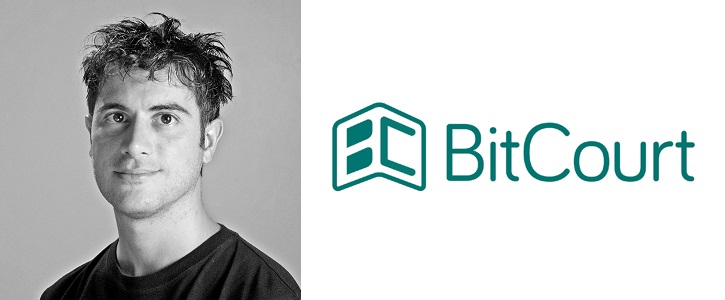If the Bitcoin blockchain validates financial transactions, why not use it to validate other things from the real world? That’s what startup founders Franco Amati, Federico Bond, and Gonzalo Blousson from BitCourt seem to have thought when they founded BitCourt; the first startup to digitize certificates in the blockchain as transparently as possible.
Academic fraud is a serious concern in Argentina where even the current president, Cristina Fernández de Kirchner, is thought to have forged her academic diploma. Some extreme cases have nothing to envy the famed forger Frank Abagnale—of “Catch me if you can” fame—one doctor was reported to have been practicing medicine for 42 years while using someone else’s diploma. On a milder note last month a football team’s doctor was exposed as an impostor when the real doctors in the ambulance recognized him as a male nurse.
This is great news for any company or individual wanting to validate documents of any kind. On the other hand forensic document analysis experts have their jobs really simplified when verifying a blockchain certified document. If the technology proposed by BitCourt takes off, many attempts at forgery will inevitably be stopped.
Cointelegraph: What is BitCourt? How did this company start?
Franco Amati: We are a contract and transparency platform using blockchain technology. We started BitCourt last May to provide solutions to bring authentication, data integrity and counterfeit-proof certification.

CT: Could you give us an example?
FA: We are working on reducing fraud and corruption by ensuring a fair and transparent process on calls for tenders, this is used for procurement departments or government public tenders.
In simple terms it works like this: bidders or suppliers prepare their proposals, which are signed and hashes of them are recorded on Bitcoin’s blockchain; no one other than the bidder knows its contents, not even BitCourt. After the deadline all proposals are sent and checked against their recorded hashes, ensuring that they weren’t changed. For example, as a result of being advised of competitor’s proposals.
CT: Have you used it anywhere so far?
FA: Yes, we’ve done it for CESYT. Which is an Argentinian College with nearly 40 years of history teaching a wide range of official careers. Furthermore, they offer different kinds of evaluations, such as SAP certifications. They contacted us in the Bitcoin forum organized by the government of Ciudad de Buenos Aires on July 2015, to record a proof of authenticity of all of their career diplomas and certifications on the Bitcoin blockchain.
CT: Which are the benefits of digitizing diplomas on the blockchain?
FA: Usual problems with academic certificates are counterfeiting and internal fraud. Digital signatures and timestamps solve these, but it is through a public and decentralized blockchain that these two technologies are combined enhancing their traditional implementations.
By using multisig digital signatures with Bitcoin addresses, we can demand each diploma to be signed by predefined authorizers, not allowing it to be registered if it doesn’t have all needed signatures.
Also, traditional timestamping solutions (RFC 3161) need a Time Stamping Authority (trust in third parties), and long-term timestamping (RFC 4998) involves an eternal maintenance to preserve the validity of the certified timestamp. Meanwhile, our blockchain alternative has none of these problems and costs.
CT: Earlier, the University of Nicosia, did something similar. How is your proposition different from their certificates?
FA: Certificate proofs have been recorded in the Bitcoin blockchain before and it was a great start. But they were cryptocurrency courses and didn’t use blockchain based digital signatures. CESYT case is the first time an academic institution does it with all of their official careers diplomas, like marketing, international trade and tourism; and digitally signed by the individuals whose signature is needed according to local regulations.
CT: What’s the difference between BitCourt and other existing tools such as proof-of-existence?
FA: Integrity and timestamping checks like proof of existence solutions are needed for most of our services, but using blockchain based digital signatures we also get authentication. By using them we can demand certain requirements that were not possible with traditional digital signatures, for example: “needs to have the signature of at least 3 of 5 authorized individuals”. Ethereum, Counterparty, RootStock or even Bitcoin’s CHECKLOCKTIMEVERIFY will expand these possibilities.
CT: Is this legal? Will this be valid in Latin-American countries? What about the rest of the world?
FA: It depends on the country. US digital signing laws are open and allow this, most of Europe too. On the other side, many Latin-American countries are very specific regarding which algorithms are or are not considered valid for digital signatures, but a judicial expert can always verify that a cryptographic proof is valid.
CT: What happens if your company fades away? What can people do with the contracts?
FA: You’ve got a personal seed that generates all your private and public keys. Everything is done client-side with JavaScript, but document backups are of course needed.
CT: What do you think is the largest impact this technology will have? Where do you see BitCourt in five years from now?
FA: Honestly, we are not really sure what shape BitCourt will have five years from now. The technology is evolving fast and we are finding new use cases every other week. We aspire to provide a complete set of tools for doing non-monetary blockchain transactions.
CT: What about third-party auditing? You know, you don’t roll your own crypto.
FA: We are using pretty standard crypto, most of it already used in Bitcoin. We are not reinventing the wheel in this topic.
CT: Is your country’s particular situation a motivation for creating this kind of anti-corruption tech? What kind of an impact would you believe this tech has on developing countries?
FA: I believe this technology could be helpful in countries with high corruption, but sometimes happens the opposite. For example, Federico and his partners in the team won AngelHack Buenos Aires 2015 hackathon with the seed of what would later become our e-tendering solution. But people there they told him that this kind of product would be useful in scandinavian countries, not in Argentina, because politics would never allow it. :)
CT: How is this related to BitNation? What lines can you draw between their ideas and yours?
FA: We have been following BitNation, ShoCard and OneName since their inception and we have deep appreciation for their work. For the moment we are not integrating our services with their identity certifications, but we can imagine some possibilities for the future.

- BitCourt founders Federico Bond (left) and Gonzalo Blousson (right)
